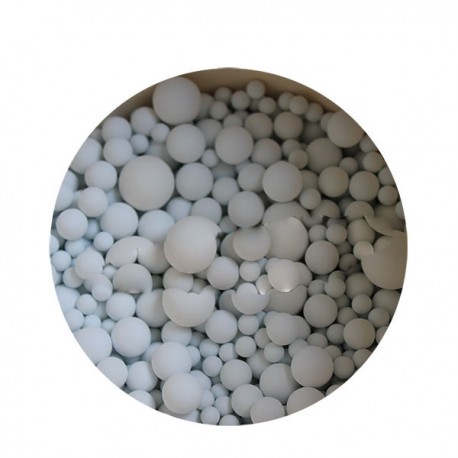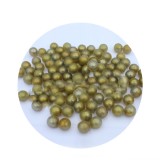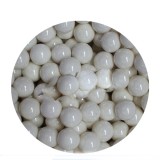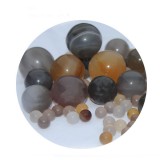Zirconia Mill Ball
- Remove this product from my favorite's list.
- Add this product to my list of favorites.
Product info
Overview
Zirconia ball is also called zirconia grind ball, zirconia ceramic ball, zirconium bead, ultra-fine grinding media and zirconia mini bead. It has smooth and gloss surface like pearl, which is the most excellent among all grinding media.
Feature
- Zircoia grind ball owns advantages of high hardness, high toughness and high density, good abrasion resistance, heat-resistance, corrosion-resistance, high stiffness, non-magnetic and electrical isolation. Its thermal expansion ratio is next to steel. Its hardness and strength can behardly changed even under condition of 600℃.
- High grinding efficiency: It has higher grinding efficiency under some conditions.
- Good fluidity: Smooth and gloss surface, lower abrasion compared with other media.
- Impact resistance and low abrasion: TZP zirconia ceramic mini ball has good toughness, and it won’t be cracked and peeled under high speed rotation and high concentration environment and its abrasion ratio is only half of zirconium silicate beads.
- Low using cost: Zirconia ball saves your costs greatly, such as reducing media and equipment abrasion, saving electricity and labor cost and so on.
Applications:
- Zircoia mill ball is used for grinding materials into ultra-fine powder in wet and dry methods. It is commonly applied to the following fields:
- High strength and toughness products: magnetic material, piezoelectric ceramics, dielectric ceramics
- Prevent pollution: medicine, food, cosmetic and dyeing industries.
- Abrasion and corrosion resistant products: painting and coating, printing ink, paper making, solar cell, and nonmetal industries.
- Ceramics: electronics ceramics, refractory ceramics, structural ceramics.
Technical Parameter
Parameters of Zirconia Balls | ||
Items | Unit | Parameter |
Composition | wt% | 94.8% ZrO25.2%Y2O3 |
Packed Density | Kg/L | 3.5(diameter 7mm) |
Specific Density | g/cm3 | ≥6.02 |
Hardness(HV) | Kg/mm2 | ≥1250 |
Thermal Conductivity | w/m.k | 3 |
Crushing Load | KN | ≥20(diameter 7mm) |
Fracture Toughness | Mpa.m1/2 | ≥9 |
Grain size | µm | ≤0.5 |
Thermal expansion Coefficient(20-400) | *10-5/℃(20-400℃) | 9.6 |






